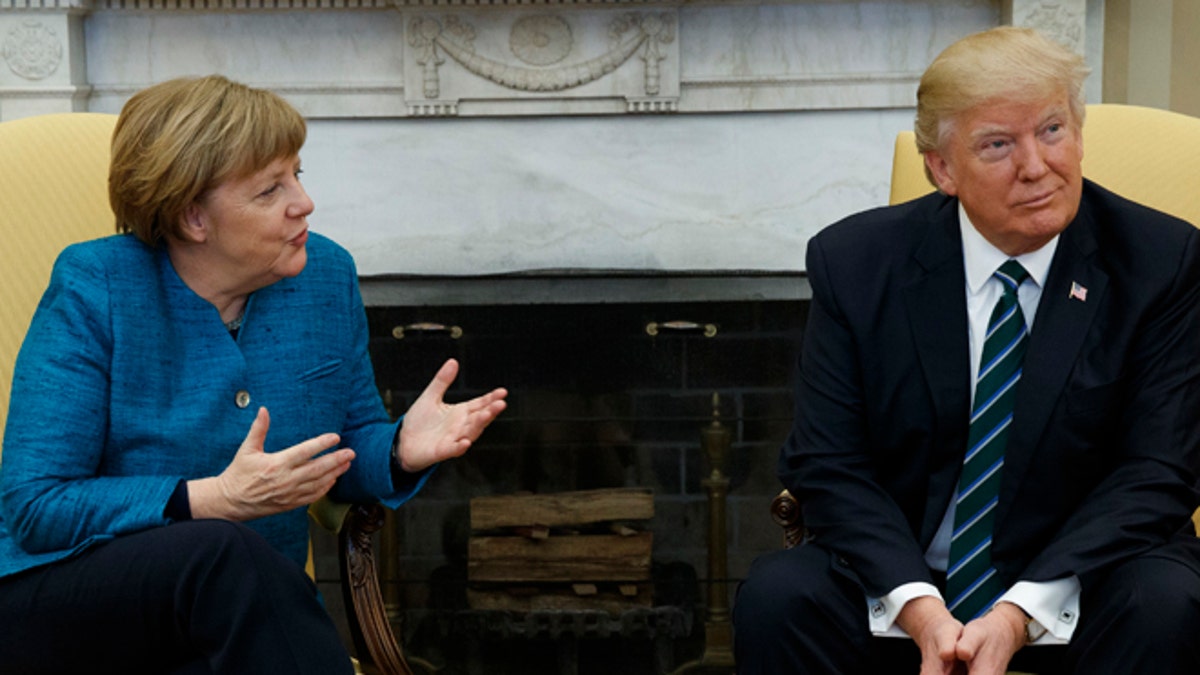
March 17, 2017: President Donald Trump meets with German Chancellor Angela Merkel in the Oval Office of the White House in Washington. (AP)
President Trump handed a bill to German Chancellor Angela Merkel for about $400 billion -- money he claims Germany owes NATO -- during their White House meeting earlier this month, according to a British newspaper.
Trump has been outspoken about NATO countries not meeting their pledge to spend at last 2 percent of GDP on defense. He raised the issue publicly in the joint press conference he held with Merkel on March 17.
“I reiterated to Chancellor Merkel my strong support for NATO, as well as the need for our NATO allies to pay their fair share for the cost of defense,” Trump said at the joint press conference. “Many nations owe vast sums of money from past years, and it is very unfair to the United States. These nations must pay what they owe.”
But The Times of London reported Sunday that Trump had gone a step further and told officials to calculate how much German defense spending had fallen short of the target since 2002 -- when former Chancellor Gerhard Schröder committed to higher defense spending. The bill was then handed to Merkel during their private meeting, The Times reported, to the tune of more than 300 billion U.K. pounds – about $374 billion.
Trump's colorful move was described as “outrageous” by a German minister.
“The concept behind putting out such demands is to intimidate the other side, but the chancellor took it calmly and will not respond to such provocations,” the minister told The Times.
The White House denied the report to Business Insider, with White House Press Secretary Sean Spicer saying: “No, this is not true.”
The Times reported that Trump had his staff prepare similar bills for other NATO members not meeting the 2 percent targets.
If true, the hardball tactic may have had some effect, with Merkel reaffirming at the press conference her nation’s intention to keep the 2 percent commitment.
“NATO is of prime importance for us, and it was not without very good reason that we said during our summit meeting in Wales that also Germany needs to increase expenditure. We committed to this 2-percent goal until 2024,” she said. “Last year we increased our defense spending by 8 percent, and we’re going to work together again and again on this.”












































